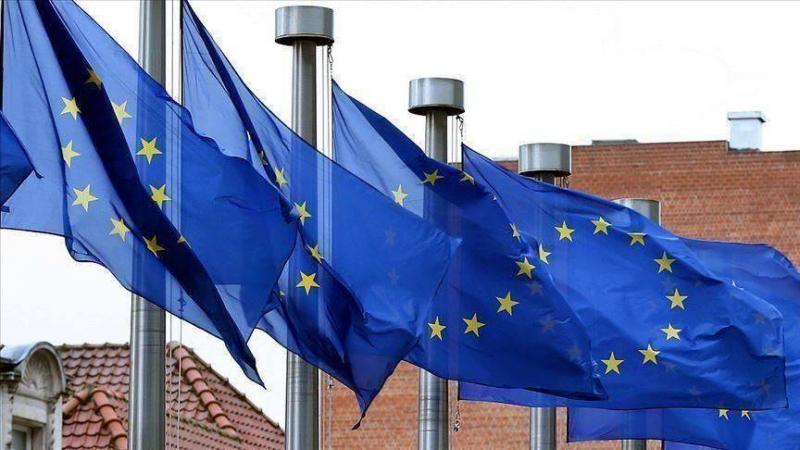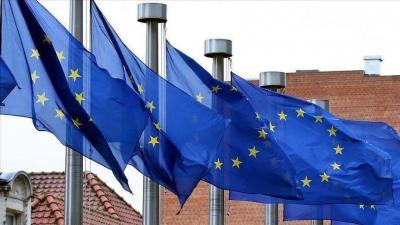Under the title "The European Union to 'Asharq': We are discussing a sanctions regime against Lebanese officials," Bloomberg Asharq reported that a spokesperson for the European Union stated to "Asharq" that the bloc is discussing a sanctions regime against Lebanese officials due to the prolongation of the political crisis in the country. This may include asset freezes and travel bans to EU countries. Earlier on Friday, Asharq Al-Awsat newspaper revealed that the EU has drafted a "political options" paper that includes "incentives and sanctions" to address the Lebanese crisis, proposing the establishment of a "European sanctions regime" that allows sanctions to be imposed on "close associates of those responsible" for the crisis, and later targeting "those directly responsible" for prolonging the crisis, regardless of their political or religious affiliations.
Luis Miguel Bueno, the EU spokesperson for the Middle East and North Africa, confirmed to "Asharq" that Lebanon is experiencing a "prolonged political stagnation" for months and added that the EU is "concerned" about this situation and has put "options" on the table to deal with the crisis, including the imposition of sanctions.
Upcoming Sanctions
Bueno stated that the EU countries have not made any final decision regarding the sanctions, saying: "There are different options on the table, but the possibility of imposing sanctions against Lebanese political parties has become feasible given the dire situation in the country," adding that "sanctions are one of the EU's main tools to urge specific parties to change their behavior and actions."
The European spokesperson refused to disclose the names of Lebanese figures included in the sanctions draft, stating that "the discussion is still ongoing" and that any decision regarding sanctions "must be taken by consensus within the EU." He continued, "The discussion has been ongoing for a long time within the European Union, and we will continue the discussion in upcoming meetings." Bueno explained that these sanctions "may include asset freezes and travel bans to EU countries."
Incentive System
Bueno highlighted that the EU is also considering "incentives" to encourage Lebanon to expedite economic reforms without revealing specific details, stating that they are still under continuous discussion. He noted that "the economic situation in Lebanon is extremely poor, and we believe it is time to make decisions in this regard," adding that "negotiations between the EU and the Lebanese Republic have been ongoing for months without yielding tangible results, and we have not made any progress on all issues, including political and economic files."
The EU demands that the Lebanese political parties expedite the formation of a new government and undertake the necessary economic and administrative reforms before endorsing these incentives. Lebanon continues to suffer the repercussions of the Beirut port explosion last year, which resulted in the deaths of 200 people and caused billions of dollars in damages, further exacerbating the already faltering economy.
Earlier this month, German companies, including "Hamburg Port Consulting," proposed billion-dollar plans to rebuild the Beirut port and surrounding neighborhoods. The French container shipping company, "CMA CGM," stated that it is following a plan to reactivate the port. Neither of these projects can proceed until Lebanon's leaders break the political deadlock preventing the formation of a government.
Political Stalemate
Lebanese politicians face international criticism for their failure to resolve the political crisis amid a deteriorating economic and social situation, worsened by the COVID-19 pandemic and the Beirut port explosion that occurred last August. The Lebanese political elite is mired in protracted negotiations over the allocation of ministerial portfolios since October when Saad Hariri was appointed Prime Minister and tasked with forming the government. Hariri has exchanged accusations with President Michel Aoun and his political team for months regarding the obstruction of government formation.




